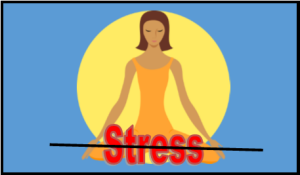How Do You Score On the Mayo Clinic Stress Test?
 Feeling a bit stressed lately?
Feeling a bit stressed lately?
Have you heard of the Mayo Clinic stress test?
I took the test twice, on successive days. The first time, my stress score was so high that alarm bells went off and my computer started smoking. The second time, less than twenty-four hours later, I was judged cool as a cucumber.
What happened? Why such a discrepancy?
The explanation, it turns out, is simple. I took the first test right after talking on the phone with my 22 year-old daughter Mary Ann. She called in a panic, demanding that for some vague reason we had to depart immediately for Portland, Oregon or else her entire four years of college would be wasted and she would incur a substantial monetary fine. Naturally, when I hung up my stress level was through the roof.
The next day she called back and said never mind, she worked it all out.
So what lessons might this little episode offer the practicing attorney?
- Stress comes and goes. Anxiety fluctuates from day to day, sometimes even from minute to minute, depending on external forces and events. Such as whether your daughter is calling. Good health – mental, physical and emotional – is an ongoing process.
- Inner stability is the goal. The law office can be a hectic place. Deadlines must be met, crises must be faced, and fires must be extinguished. Picture yourself as the eye of the hurricane. All around you chaos swirls, but inside you are steady and composed.
- Step one is identifying the sources of your stress. “Consider internal stressors, such as fears or unrealistic expectations, as well as external stressors, such as family or work demands,” the Mayo Clinic recommends. “Next, seek out effective strategies for coping, including exercise, music, crafts and other creative outlets, humor or simplifying your life by saying no.”
- Stress is contagious. People who are freaking out tend to freak others out as well. This explains riots and mob mentality. The best way to deal with frightened animals, crying children and crazy clients is to stay calm. Try to surround yourself with sanity.
- Finish strong. We cling to our most recent experiences. Behavioral psychologists call this the recency effect. We remember the last items on a list. We judge an entire movie bad if it has a crummy ending. Likewise, if a case ends poorly, the client will be unhappy despite all the good things that might have come before. Wrap cases up on a high note. End your workday by doing something fun.
- Beware the crazy-making power of children. Especially if they are 22 years old and named Mary Ann.




